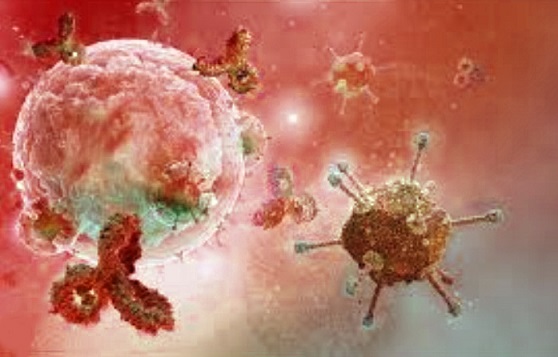Study Alarmingly Finds That COVID-19 Causes Hidden Immune Changes Even in ‘Healthy People’
Nikhil Prasad Fact checked by:Thailand Medical News Team Aug 30, 2025 6 months, 6 days, 6 hours, 32 minutes ago
Medical News: The Lasting Impact of the Pandemic
A new study led by scientists from the Saint Petersburg Pasteur Institute and the First Pavlov State Medical University of St. Petersburg reveals that the COVID-19 pandemic has left behind a deeper biological footprint than many realize.
 Study Alarmingly Finds That COVID-19 Causes Hidden Immune Changes Even in ‘Healthy People’
Study Alarmingly Finds That COVID-19 Causes Hidden Immune Changes Even in ‘Healthy People’
Researchers found that the virus not only disrupts the immune system in people with long COVID but has also reshaped the immune profiles of people who appear to be completely healthy. This
Medical News report shows how immune system signaling molecules, known as cytokines, remain altered in both groups long after the initial infection period.
What the Study Examined
The team compared blood samples from three groups: patients with long COVID, individuals who recovered from mild COVID-19 without lasting symptoms, and people whose blood was collected before the pandemic began. Using a detailed analysis of 47 different immune molecules, they discovered striking differences between all three groups, suggesting that the immune system has entered a “new normal” in the post-pandemic era.
Key Findings in Long COVID
Patients suffering from long COVID had elevated levels of certain inflammatory cytokines such as IL-7, IL-8, IL-17F, and IL-18, while protective signals like IL-4, IL-13, IL-22, and IL-27 were reduced. This imbalance points to chronic inflammation and weakened tissue repair mechanisms. Elevated growth factors such as EGF and FGF-2 may even contribute to fibrosis, the scarring of tissues that can affect lungs and other organs.
Immune Changes in Recovered but Healthy Individuals
Surprisingly, even those who recovered fully and reported no lingering symptoms showed differences compared to pre-pandemic controls. They had elevated inflammatory markers like IL-13 and MCP-3 but reduced protective molecules such as MDC, M-CSF, IL-12, and IL-17F. This suggests that even apparently healthy individuals now carry a shifted immune balance, possibly influenced by past infection, vaccination, or changes in environmental exposures during the pandemic.
Why This Matters
Cytokines play a central role in coordinating immune defenses. Persistent disruption could explain why long COVID patients continue to suffer fatigue, brain fog, and breathing issues. For healthy individuals, the concern is whether these changes represent an adaptive form of immune training or whether they might increase risks of future health problems like chronic inflammation, fibrosis or cancer.
A New Definition of Normal
The researchers stress that moving forward, studies on long COVID must use both pre-pandemic and post-pandemic healthy groups as comparison points. Without this dual baseline, it becomes impossible to tell which changes are truly caused by long COVID and which are the result of broa
der pandemic-related shifts in population immunity.
Final Thoughts
The findings challenge the assumption that recovery from COVID-19 returns people to their pre-pandemic health state. Instead, the pandemic may have permanently altered the immune system’s baseline, even in people who feel fine. These discoveries raise important questions about long-term public health, chronic disease risks, and how medicine should define what it means to be “healthy” in a post-pandemic world.
The study findings were published in the peer reviewed International Journal of Molecular Sciences.
https://www.mdpi.com/1422-0067/26/17/8432
For the latest COVID-19 News, keep on logging to Thailand
Medical News.
Read Also:
https://www.thailandmedical.news/news/muscle-weakness-in-long-covid-linked-to-hidden-energy-crisis
https://www.thailandmedical.news/news/rare-brain-disorder-linked-to-covid-19-emerges-without-lung-symptoms
https://www.thailandmedical.news/news/alarming-discovery-that-asymptomatic-covid-19-infections-causes-hidden-blood-vessel-and-red-blood-cell-changes
